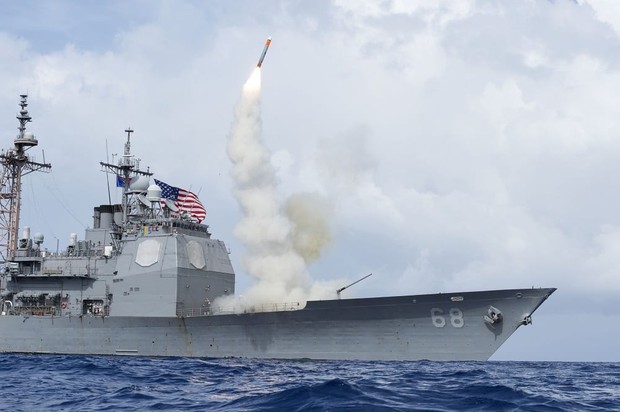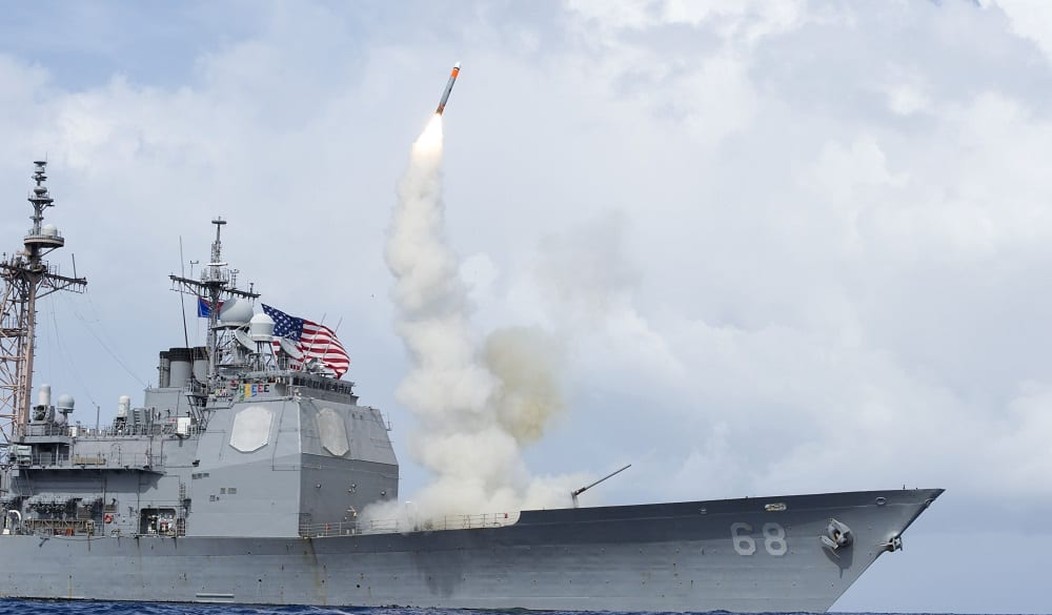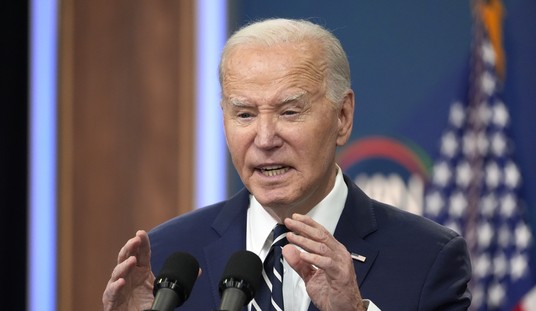
President Donald J. Trump’s retaliation against Syria for its use of chemical weapons, which killed dozens of civilians including small children in northern Idlib, is the beginning of a dangerous, but necessary, reassertion of American deterrence.
The Washington Post reported that two Navy destroyers — the USS Ross and USS Porter, in the eastern Mediterranean Sea — launched 59 cruise missiles at the Syrian military’s Shayrat airfield in Homs province Thursday. Shayrat is the site from which the planes that conducted the chemical attack in Idlib are believed to have originated. This is the first direct American assault on the government of President Bashar al-Assad since that country’s civil war began six years ago.
President Trump said the strike was in the “vital national security interest” of the United States and called on “all civilized nations to join us in seeking to end the slaughter and bloodshed in Syria. And also to end terrorism of all kinds and all types. We ask for God’s wisdom as we face the challenge of our very troubled world.”
Good decision? Bad decision? Time may tell, . . . One thing Trump has established–potentially more significant than the immediate consequences of today’s attack–is that the era of empty threats from the U.S. government is over.
And that brings us to the dangerous part.
Victor Davis Hanson wrote a very prescient and timely piece addressing the danger that accompanies a major power’s effort to reassert its lost deterrence:
The United States may be entering just such a perilous transitional period. Rightly or wrongly, China, Iran, North Korea, Russia, and Middle East-based terrorists concluded after 2009 that the U.S. saw itself in decline and preferred a recession from world affairs.
In that void, rival states were emboldened, assuming that America thought it could not — or should not — any longer exercise the sort of political and military leadership it had demonstrated in the past. Enemies thought the U.S. was more focused on climate change, United Nations initiatives, resets, goodwill gestures to enemies such as Iran and Cuba, and soft-power race, class, and gender agendas than on protecting and upholding longtime U.S. alliances and global rules.
In reaction, North Korea increased its missile launches and loudly promised nuclear destruction of the West and its allies.
Russia violated its obligations under the Intermediate-Range Nuclear Forces Treaty and absorbed borderlands of former Soviet republics. Iran harassed American ships in the Persian Gulf and issued serial threats against the U.S.
China built artificial island bases in the South China Sea to send a message about its imminent management of Asian commerce.
In Syria and Iraq, the Islamic State killed thousands in medieval fashion and sponsored terrorist attacks inside Western countries.
Hanson offers ten old rules to guide us through this dangerous reassertion of U.S. power. In the presentation of those rules he offers these gems:
- After eight years of pseudo-red lines, step-over lines, deadlines, and “game changers,” American ultimatums without consequences have no currency and will only invite further aggression.
- Strategic victory is time-consuming and usually involves drawing on economic, political, and cultural superiority as well as military success to ensure that a defeated opponent stays defeated — and agrees that further aggression is counterproductive.
- Like it or not, neutrals more often flock to crude strength than to elegant and humane weakness.
- Majestic pronouncements and utopian speechifying impress global elites and the international media, but they mean nothing to rogue nations. Such states instead count up fleets, divisions, and squadrons — and remember whether a power helps its friends and punishes its enemies.
Hanson ends with this wisdom, “it is always better to be safe and ridiculed than vulnerable and praised.”
It is worth reading the whole thing.














Join the conversation as a VIP Member